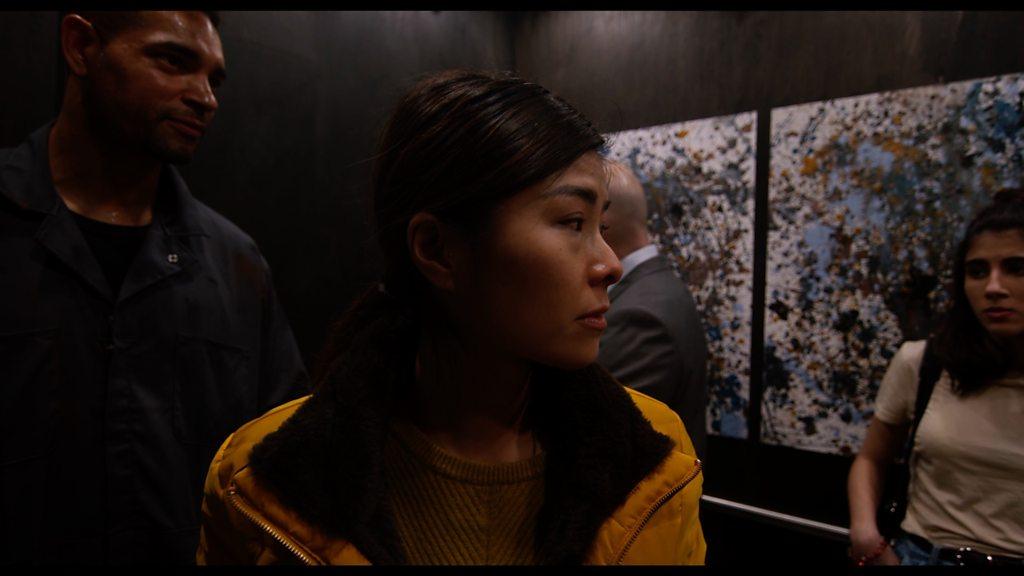Coronavirus: Fauci says US 'could have saved lives' with earlier action
- Published
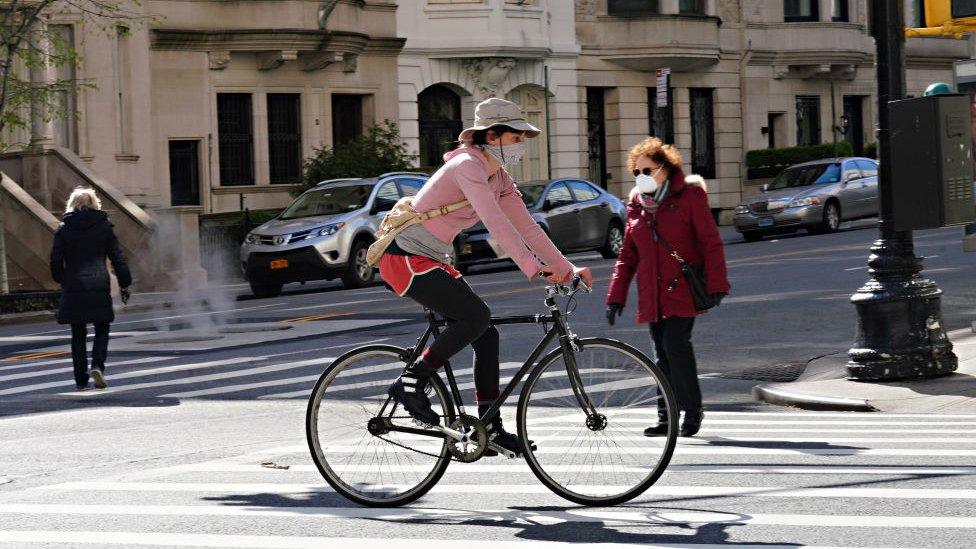
The US has now overtaken Italy to have the highest death toll from coronavirus in the world
The US "could have saved lives" if it had introduced measures to stop Covid-19 earlier, a top health official says.
"If we had, right from the beginning, shut everything down, it may have been a little bit different," Dr Anthony Fauci told CNN, but added that making that decision had been complicated.
The US has recorded over 555,000 virus cases and 22,000 deaths so far.
President Donald Trump later signalled his disproval with the interview by sharing a tweet about firing Dr Fauci.
Dr Fauci has become the public face of the US fight against the outbreak, appearing alongside Mr Trump at the White House's daily updates.
But the two have openly differed on several issues, Mr Fauci pointing out in a recent CBS interview that he takes a scientific approach while Mr Trump comes from a "hope, layperson standpoint".
Mr Trump retweeted a post on Sunday from former Republican congressional hopeful Deanna Lorraine.
"Fauci was telling people on February 29th that there was nothing to worry about and it posed no threat to the US public at large," it said. "Time to #FireFauci..."
But the White House later denied that Mr Trump intended to fire him. "This media chatter is ridiculous," a spokesman said. "Dr Fauci has been and remains a trusted adviser."
The Trump administration has issued social distancing guidance that lasts until 30 April, but there are questions over when restrictions should be lifted.
What did Mr Fauci say?
When asked about a New York Times report that Dr Fauci and other officials had suggested aggressive mitigation towards the end of February, Dr Fauci said health officials could only make recommendations from a "pure health standpoint".
"Often, the recommendation is taken. Sometimes, it's not. But it is what it is, we are where we are right now."
Dr Fauci, who is leading the US response to coronavirus, added that "no one is going to deny" that logically, earlier mitigation could have saved lives.
But he said "what goes into those kinds of decisions is complicated".
"There was a lot of pushback about shutting things down back then."
Allow X content?
This article contains content provided by X. We ask for your permission before anything is loaded, as they may be using cookies and other technologies. You may want to read X’s cookie policy, external and privacy policy, external before accepting. To view this content choose ‘accept and continue’.
The top doctor also acknowledged that multiple factors were involved with the current situation in the US, such as the nation's size and heterogeneity, not just a later start on mitigation.
But he also said parts of the nation might be able to begin a slow return to normalcy "at least in some ways, maybe next month".
"You don't want to do something precipitously," Dr Fauci emphasised, noting that ending virus containment efforts too hastily could lead to a rebound.
"It's going to be depending on where you are in the country, the nature of the outbreak you already experienced and the threat of an outbreak you may not have experienced."
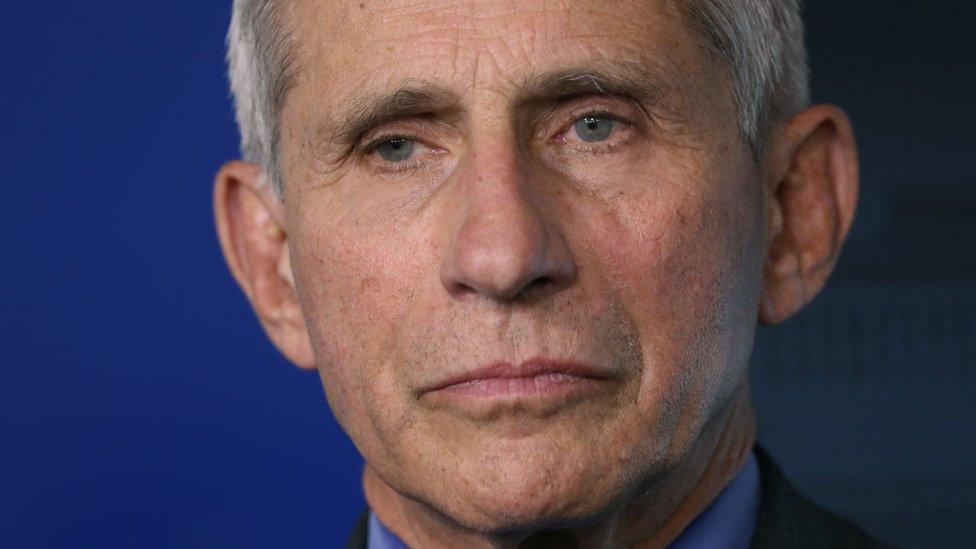
Dr Fauci is leading the US response to coronavirus
Dr Fauci was also hopeful that the US presidential election, slated for 3 November, would still take place - if the nation takes a measured approach to lessening restrictions.
The president's retweet, seen as a signal of his frustration with Dr Fauci, came alongside other tweets from him criticising the media over its coverage of his administration's response to the coronavirus outbreak.
In recent days the president has also been critical of the World Health Organization, as he continues to face mounting pressure over both the outbreak and the severe economic disruption it is causing.
What's the situation in New York?
New York has become the epicentre of the fight against coronavirus in the US.
The state has almost 190,000 cases and has seen more than 10,000 deaths - among the highest rates in the world.
During a briefing on Sunday, New York Governor Andrew Cuomo said he wanted his state to open "as soon as possible".
But the governor was cautious, saying there had to be a co-ordinated approach between neighbouring states, more testing availability and additional federal funding.
Mr Cuomo was also sceptical of any forecasting, saying: "Every informed projection by experts, by the way, has not turned out correct."
That was good news, he noted, as it meant policies and social compliance had made a difference in the last few weeks.
"I've said from day one - all these predictions, we're gonna open businesses in May, do this in May, do this in June - I think that's all premature. I don't think anybody can make an informed decision right now."
Mr Cuomo said the number of deaths were stabilising, albeit at a "terribly high rate" - 758 people lost their lives in the last 24 hours. The death toll has remained in the 700s for the last few days.

A SIMPLE GUIDE: How do I protect myself?
AVOIDING CONTACT: The rules on self-isolation and exercise
HOPE AND LOSS: Your coronavirus stories
VIDEO: The 20-second hand wash

Will US restrictions be loosened?
The White House remains keen to ease social distancing guidelines, and 1 May is a target date, according to food and drug agency commissioner Dr Stephen Hahn.
Dr Hahn told ABC News on Sunday, "We see light at the end of the tunnel."
The decision to change restrictions would be ultimately driven by safety and welfare considerations, he added.
Experts, including Dr Hahn, say increasing testing will be key to reopening the country, though Mr Trump has minimised the need for widespread testing.
New York's Mr Cuomo and New Jersey Governor Phil Murphy have both called for more tests to stay ahead of the virus.
On Sunday, Mr Cuomo announced an executive order calling for more antibody testing in order to determine who might have Covid-19 immunity and could return to work.
The questions over when the US might relax its containment efforts come as the states continue to grapple with the spread of the virus.
White House Deputy Press Secretary Judd Deere announced President Donald Trump had issued a major disaster declaration for Wyoming on Saturday, meaning all 50 states have those declarations in effect for the first time in history.
In other developments:
UK Prime Minister Boris Johnson has been discharged from hospital after several days in intensive care due to Covid-19
Amid plummeting oil prices, the worldwide oil supply will be cut by nearly 10% in an agreement between the Organization of the Petroleum Exporting Countries (Opec), Russia, the US and Mexico
As Christians around the world celebrate Easter under lockdown, the Pope delivered the traditional Easter Sunday message to an empty St Peter's Basilica as millions watched online
- Published10 April 2020
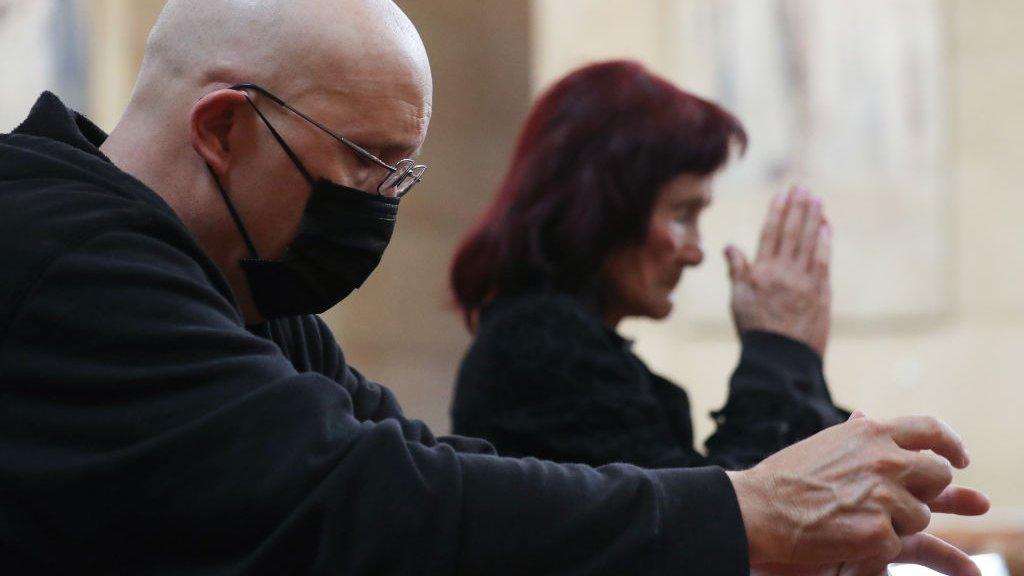
- Published9 April 2020
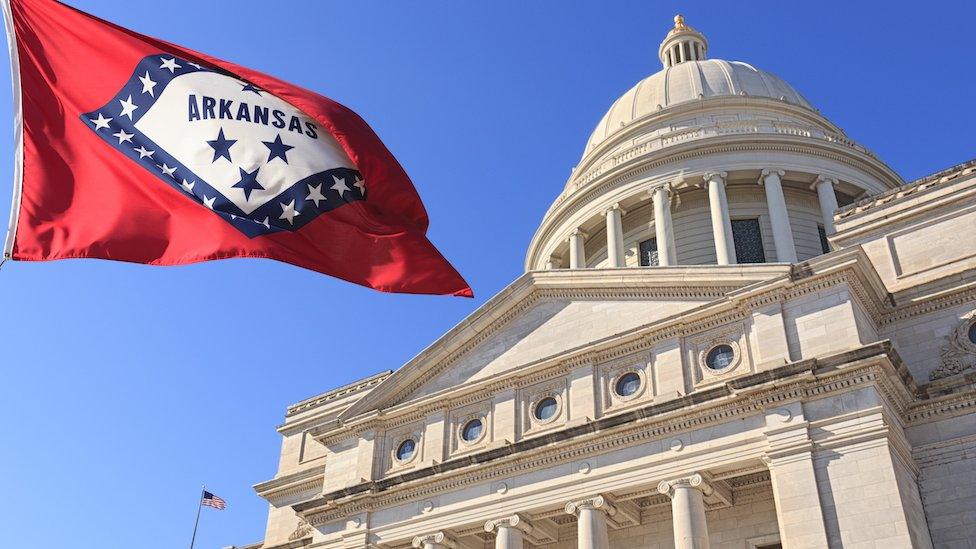
- Published10 April 2020
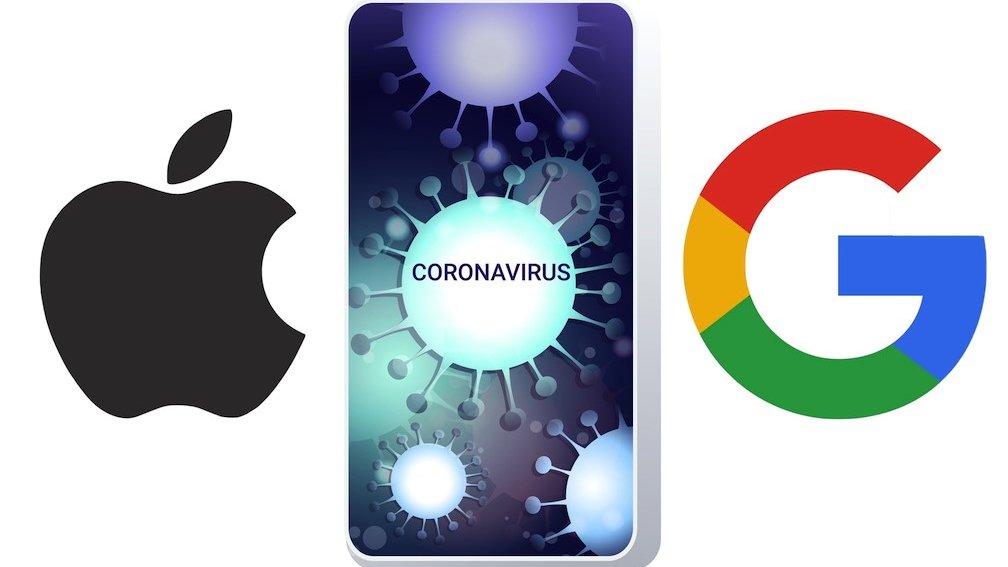
- Published9 April 2020
